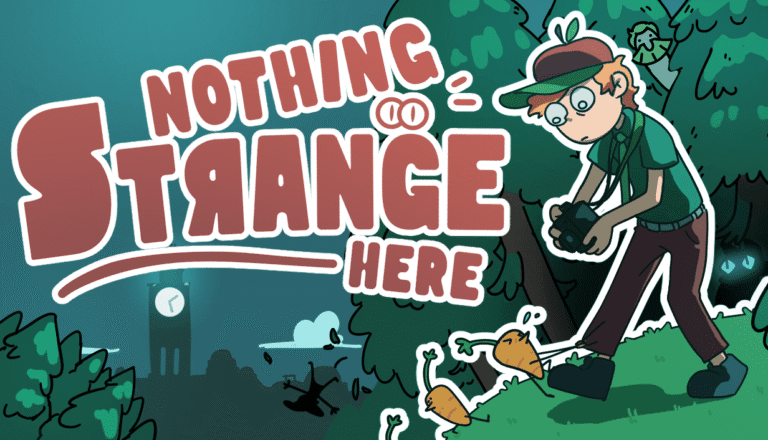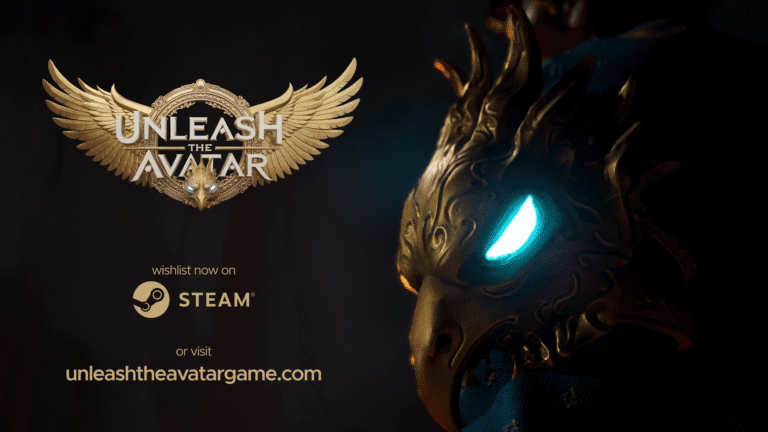There’s something magnetic about the chaos of rock and roll – the sweat-soaked stages, the deafening crowds, and the thin line between artistic genius and complete meltdown. After spending several hours with an early build of Rockbeasts, Lichthund’s ambitious band management simulator, I’m convinced this might be the game that finally captures the gritty soul of 1990s underground music culture. Set against the backdrop of MTV’s golden era, bad haircuts, and even worse decisions, Rockbeasts doesn’t just simulate the music industry – it throws you headfirst into its beautiful, chaotic mess.
From Basement Shows to Big Stages:
Rockbeasts is fundamentally a story-driven role-playing management game that casts you as the handler of a struggling rock band. Think Football Manager meets The Witcher 3, but instead of tactical formations and monster hunts, you’re navigating venue bookings, band drama, and the eternal struggle between artistic integrity and commercial success.
The game’s 1990s setting isn’t just window dressing – it’s the beating heart of the experience. This was an era when alternative rock was exploding from underground scenes into mainstream consciousness, and Rockbeasts captures that transitional moment perfectly. You’re not managing Metallica or Nirvana; you’re shepherding a group of misfits trying to make their mark in dingy basements and sweaty dive bars, hoping to catch lightning in a bottle.
What immediately strikes you about Rockbeasts is its commitment to authenticity. This isn’t a sanitized version of the music industry – it’s raw, unfiltered, and occasionally uncomfortable in the best possible way.
Rock and Roll Fantasy: Story & Themes That Hit Different
The narrative backbone of Rockbeasts comes courtesy of Jakub Szamałek, whose writing credits read like a master class in interactive storytelling. Having penned senior writing duties on The Witcher 3 and principal writing on Cyberpunk 2077, Szamałek brings that same level of nuanced character development and moral complexity to the world of rock management. Working alongside him is Micah McFarland as Narrative Designer, who brings additional depth to the character development and quest design that makes each interaction feel consequential.

During my hands-on time, what became immediately apparent was how the game refuses to paint anyone as purely heroic or villainous. Your band members are flawed, complicated individuals dealing with their own personal demons. The bassist might be struggling with addiction, the drummer could be dealing with family pressures, and the lead singer’s ego might be writing checks the band can’t cash. These aren’t just stat modifications or random events – they’re genuine character arcs that evolve based on your management decisions.
The game’s dark comedy shines through in its dialogue and situations. There’s a scene early on where you’re trying to book a venue, and the venue owner – voiced with gravelly authenticity – delivers lines that perfectly capture the sleazy underbelly of the music business. It’s funny, yes, but there’s an underlying truth that prevents it from feeling like mere parody.
Hands-On Harmony:
The core gameplay loop in Rockbeasts revolves around three main pillars: venue management, band dynamics, and artistic choices. Each gig becomes a mini-campaign where you’re selecting venues, curating setlists, and managing the countless variables that can make or break a performance.
The venue selection system feels particularly well-crafted. Each location – from grimy basement clubs to slightly-less-grimy dive bars – has its own character, audience expectations, and technical limitations. Booking a show at a venue known for metal acts when your band leans more alternative rock creates tension that ripples through multiple systems. Your band might question your judgment, the audience might be cold, and the venue’s sound system might not complement your carefully crafted setlist.
Setlist curation struck me as one of the game’s most engaging mechanics. You’re not just selecting songs based on crowd energy – you’re considering the emotional journey of the performance, the band’s current relationships, and even the venue’s acoustics. There’s a palpable sense of authorship in crafting the perfect 45-minute set that tells a story.
The game’s dialogue system bears clear DNA from Szamałek’s previous work, offering branching conversations that feel consequential rather than superficial. When your lead guitarist storms off stage mid-song, your response doesn’t just affect that moment – it reverberates through future interactions and band chemistry.
The Good, The Bad, and The Amplified:
What’s Working:
The artwork and aesthetic design deserve particular praise. Lead artist Mateusz has crafted a visual style that draws inspiration from animated shows while creating something distinctly its own. The hand-drawn character portraits feel like they were ripped from underground zines, with moody lighting that perfectly captures the claustrophobic energy of basement venues and the electric anticipation of larger stages. Each character design tells a story – the worn leather jackets, the deliberately messy hair, the carefully cultivated “I don’t care” attitudes that actually require immense care to maintain.

The voice acting is exceptional across the board, featuring talent from major games including Baldur’s Gate III, Cyberpunk 2077, Horizon Zero Dawn, Metaphor ReFantazio, and Alan Wake II. Having Iggy Pop lend his iconic voice to the game adds tremendous authenticity. But it’s not just the celebrity cameo – every performance I encountered felt lived-in and genuine, from the gravelly venue owners to the passionate band members arguing about artistic direction.
The original soundtrack featuring 17 full tracks composed specifically for the game creates an impressive sense of immersion. These aren’t generic rock songs – they feel like authentic products of the era and setting, complete with the slightly rough production values that made ’90s alternative rock so compelling.
What Needs Polish:
Some interface elements felt clunky during my playtime, particularly when navigating the venue booking menus. The game’s information density can be overwhelming initially – there’s so much character information and relationship tracking that it occasionally feels more like work than play.

The pacing sometimes struggles with balancing the slower, relationship-focused moments with the high-energy concert sequences. Finding the right rhythm between these different gameplay modes will be crucial for the final release.
Full Volume:
Rockbeasts promises to deliver over 100 characters across 90 locations, suggesting a scope that extends far beyond what I experienced in the early build. The full game is structured like a “double feature album’s-worth of story,” indicating substantial content for players who become invested in their band’s journey.
The target audience seems clear: players who appreciate narrative-driven experiences like Disco Elysium or The Stanley Parable, but with the strategic elements of management sims like Two Point Hospital or Prison Architect. It’s a niche intersection, but one that could prove incredibly rewarding for the right player.
The game’s multiple ending system suggests significant replayability, with different management approaches leading to dramatically different outcomes for your band. Whether you prioritize artistic integrity or commercial success will fundamentally shape not just the story’s conclusion, but the entire journey.
Preview Verdict: Worth Watching

Based on my limited but promising time with Rockbeasts, this feels like a passion project that understands its subject matter intimately. The combination of Szamałek’s writing expertise, Mateusz’s distinctive artistic vision, McFarland’s narrative design contributions, and genuine love for ’90s alternative culture creates something special.
The game isn’t trying to be everything to everyone – it’s laser-focused on delivering an authentic rock management experience that captures both the glamour and the grime of the industry. If you’ve ever wondered what it would be like to guide a band from basement shows to potential stardom while navigating the complex human dynamics that make-or-break musical partnerships, Rockbeasts might be exactly what you’ve been waiting for.
With a 2025 release window for Steam and consoles, there’s still time for Lichthund to polish the rougher edges. But even in this early state, Rockbeasts demonstrates the potential to become something truly special – a game that doesn’t just simulate the music industry, but makes you feel the weight of every decision in the quest for rock and roll immortality.
Keep this one on your wishlist. The stage is set for something memorable.



